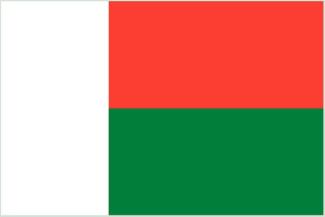Dashboard
Country Planning Cycles
Country national health planning cycles, health programmatic/project timelines and information on key partners.


Madagascar
Main cycles
Plan de Developpement du secteur sante 2015-2019
Scheduled review of NHP
N/A
Annual Health Sector Review
information not available
Fiscal Start Date
January 1
Milestones
Executive branch:election last held on 7 November and 19 December 2018 (next to be held in 2023); prime minister nominated by the National Assembly, appointed by the president
Legislative branch: Senate - last held 29 December 2015 (next to be held in 2021) National Assembly - last held on 20 December 2013 (next to be held on 27 May 2019)
Legal System: Civil Law
Programmatic Planning and Project Timelines
| Window | 20002040 |
|---|---|
| National Health Policy Strategy and Plan |
2015
2019
|
| National Development |
2015
2019
|
| Multi-Year Plan (cYMP) for Immunization |
2016
2019
|
| WHO Country Cooperation Strategy |
2016
2020
|
Partners in Country
Pooled funding and or SWAP
SWAp
UNDAF rollout cycles
2008-2011
PEPFAR focus countries
Yes
World Bank
The World Bank's Country Partnership Framework (CPF) with Madagascar for 2017–2021. the CPF aims to strengthen resilience and reduce the country's fragility, while promoting inclusive economic growth. Recommendations from the analysis of the Systematic Country Diagnostic (SCD), published in 2015, served as a basis for formulating CPF priorities: (1) improve governance; (2) strengthen public finances, improve public services, and the financing of key investments; (3) implement policies benefiting the private sector; (4) develop human capital; and (5) reduce poverty, in particular by improving the living conditions of the poor living in rural areas. On this basis, the World Bank and the Malagasy Government have set three priority goals to be achieved by 2021:1)Reduce stunting in children under five years of age by 1 percentage point per annum in areas where chronic malnutrition rates are highest 2)Increase the number of children completing the primary school cycle by 25%; 3)Increase the rate of access to electricity to 20%. To achieve these outcomes, IDA will allocate $1.3 billion to Madagascar over the next five years to finance interventions in the areas of early childhood, resilient agriculture, financial inclusion, and energy.All told, the World Bank Group is financing the implementation of 16 operations representing a total commitment of $838 million, of which $372 million has already been disbursed. The agricultural sector accounts for the majority of commitments (35%), followed by infrastructure, energy, private sector support (30%), education and social protection (21%), and public administration (14%).
European Commission
Country Strategy Paper for Madagascar (2008-2013) EC assistance will concentrate on transport infrastructure rural development regional planning and general budget support. EC support will contribute to developing national transport infrastructure improving the transparency of road maintenance funding supporting decentralisation and the sustainable use of natural resources. In addition it will contribute to improving macroeconomic reform and the management of public funds as well as advancing social governance and increasing the capacity of relevant public institutions and non-state actors. Additional support will be available for measures to promote good governance and regional integration. The multi-annual indicative programme for Madagascar under the 10th EDF amounts to €589.2 million to address these priorities. EC interventions in Madagascar also take account of cross-cutting issues in particular gender HIV/AIDS and environmental issues.
Health Metrics Network Wave 1
Yes